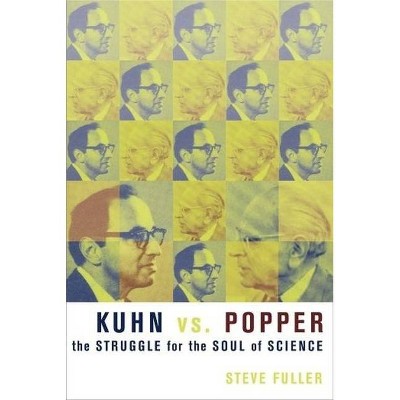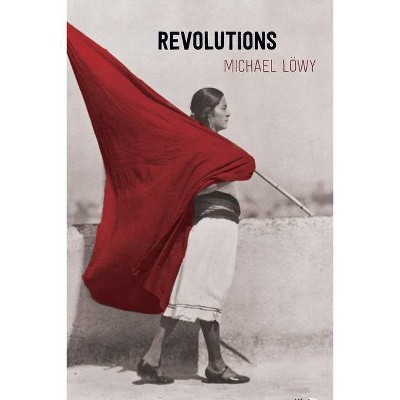Kuhn vs. Popper - (Revolutions in Science) by Steve Fuller (Hardcover)

Similar Products
Products of same category from the store
AllProduct info
<p/><br></br><p><b> About the Book </b></p></br></br><P>Although Thomas Kuhn and Karl Popper debated the nature of science only once, the legacy of this encounter has dominated intellectual and public discussions on the topic ever since. Kuhn's relativistic vision of science as just another human activity, like art or philosophy, triumphed over Popper's more positivistic belief in revolutionary discoveries and the superiority of scientific provability. Steve Fuller argues that not only has Kuhn's dominance had an adverse impact on the field but both thinkers have been radically misinterpreted in the process.<p/><br></br><p><b> Book Synopsis </b></p></br></br><p>Thomas Kuhn's <em>Structure of Scientific Revolutions</em> has sold over a million copies in more than twenty languages and has remained one of the ten most cited academic works for the past half century. In contrast, Karl Popper's seminal book <em>The Logic of Scientific Discovery</em> has lapsed into relative obscurity. Although the two men debated the nature of science only once, the legacy of this encounter has dominated intellectual and public discussions on the topic ever since.</p><p>Almost universally recognized as the modern watershed in the philosophy of science, Kuhn's relativistic vision of shifting paradigms--which asserted that science was just another human activity, like art or philosophy, only more specialized--triumphed over Popper's more positivistic belief in science's revolutionary potential to falsify society's dogmas. But has this victory been beneficial for science? Steve Fuller argues that not only has Kuhn's dominance had an adverse impact on the field but both thinkers have been radically misinterpreted in the process. This debate raises a vital question: Can science remain an independent, progressive force in society, or is it destined to continue as the technical wing of the military-industrial complex? Drawing on original research--including the Kuhn archives at MIT--Fuller offers a clear account of "Kuhn vs. Popper" and what it will mean for the future of scientific inquiry.</p><p/><br></br><p><b> Review Quotes </b></p></br></br><br>A succinct yet in-depth inquiry into a significant philosophical issue.--Kirkus<br><br>This slight volume is a lively, incisive volume...This volume will be of great interest both to academic specialists and general readers...Recommended.--Choice<br><br><i>Kuhn vs. Popper</i> is a concise and engaging book that philosophers of science, investigators of political thought and, indeed, laymen with a philosophical interest will find an interesting read.--Milja Kurki "History of Political Thought "<br><br>A feisty and rich little book...always stimulating--A. C. Grayling "Financial Times "<br><br>A provocative read.--Robert J. Deltete "Philosophy In Review "<br><br>It's a fascinating and, at 132 pages, delightfully concise work.--Gregory Mone "Popular Science "<br><br>Provocative and brilliant.--Neil McLaughlin "Canadian Journal of Sociology Online "<br><br>This is an eloquently written book, offering new and interesting perspectives on the moral and social ramifications of this debate.--Ray Percival "New Scientist "<br><p/><br></br><p><b> About the Author </b></p></br></br>Steve Fuller is professor of sociology at the University of Warwick, England, and the author of <i>Thomas Kuhn: A Philosophical History for Our Times</i>.
Price History
Price Archive shows prices from various stores, lets you see history and find the cheapest. There is no actual sale on the website. For all support, inquiry and suggestion messagescommunication@pricearchive.us




















